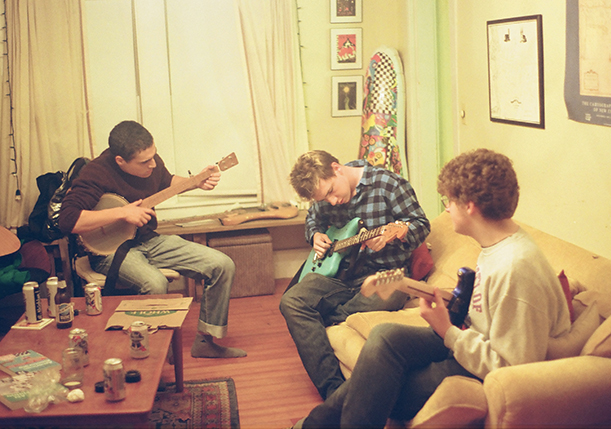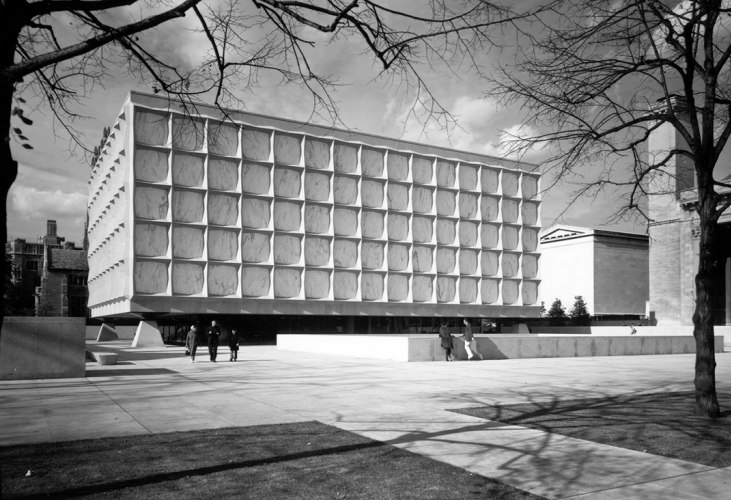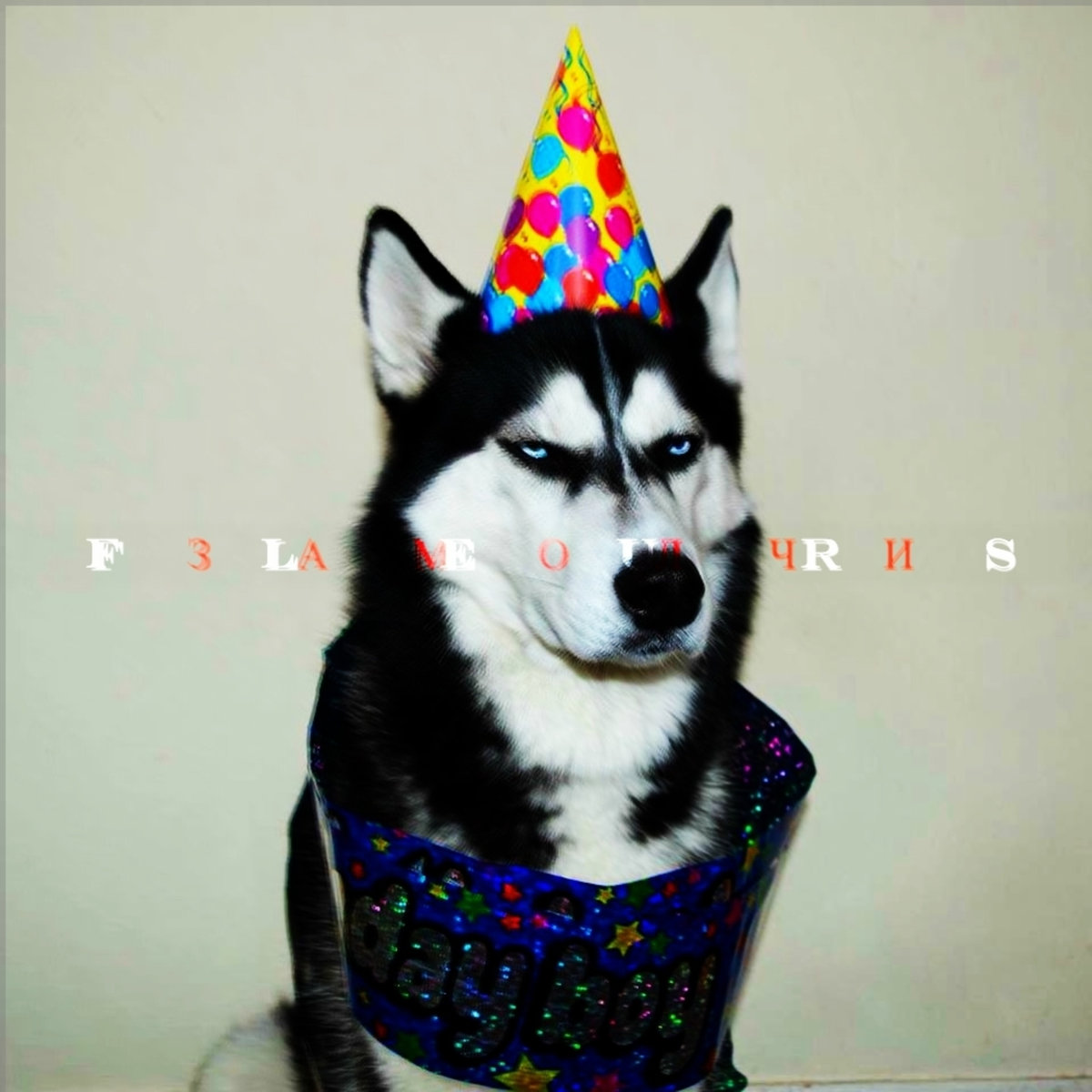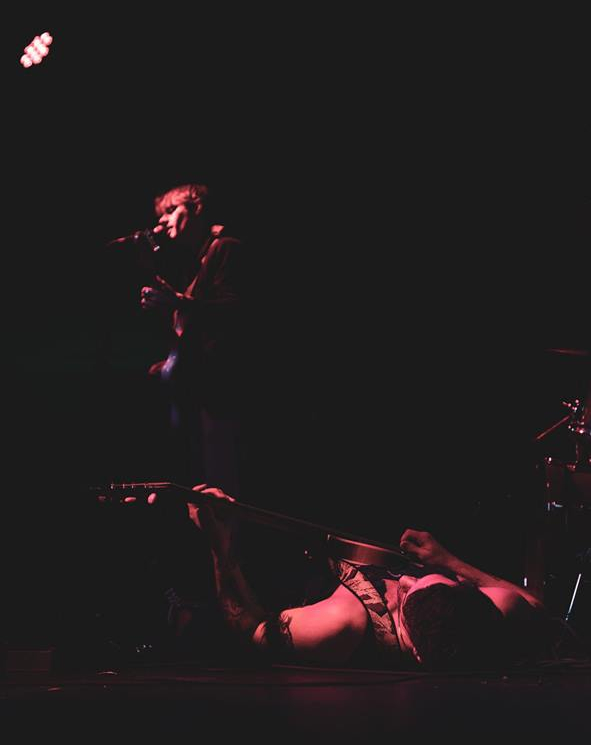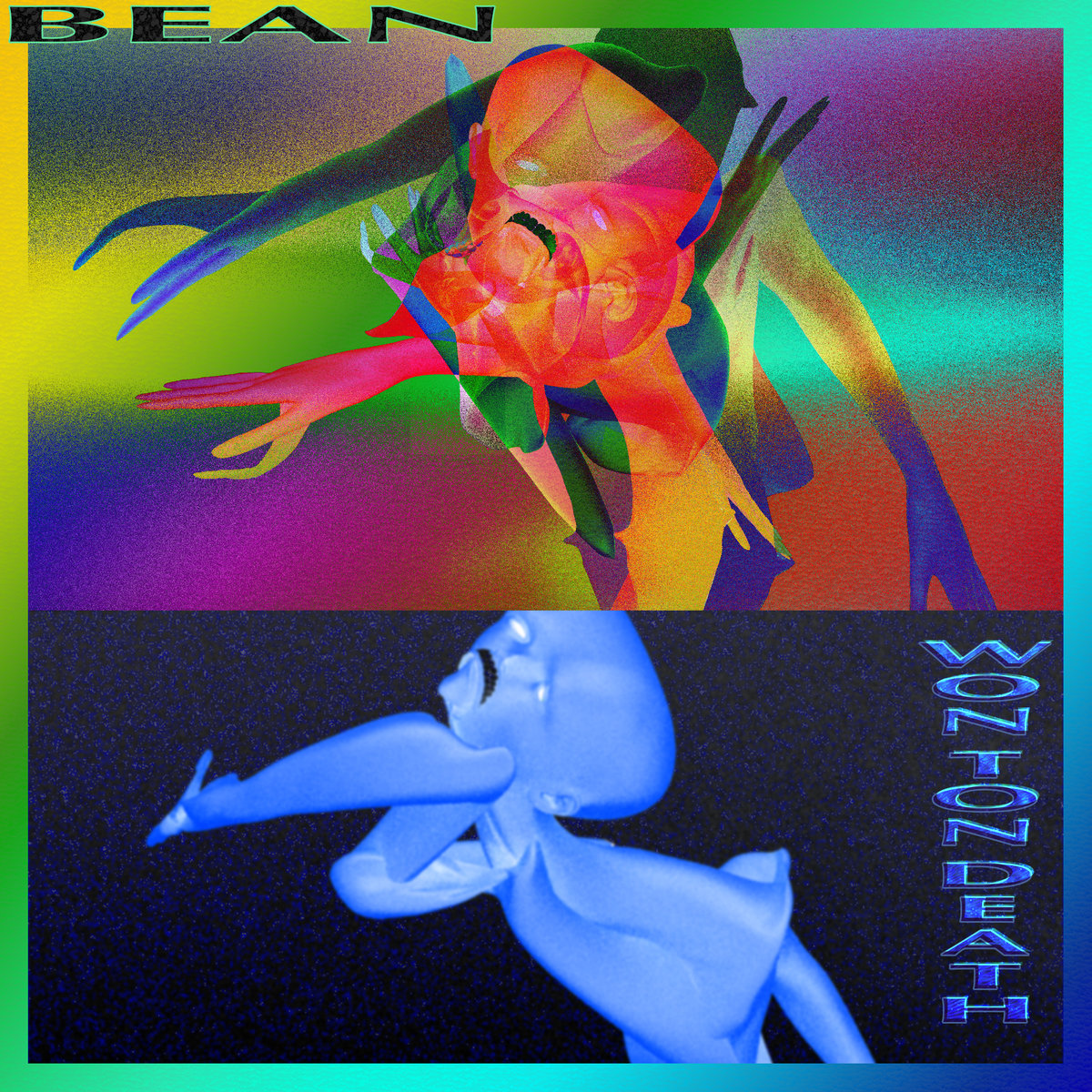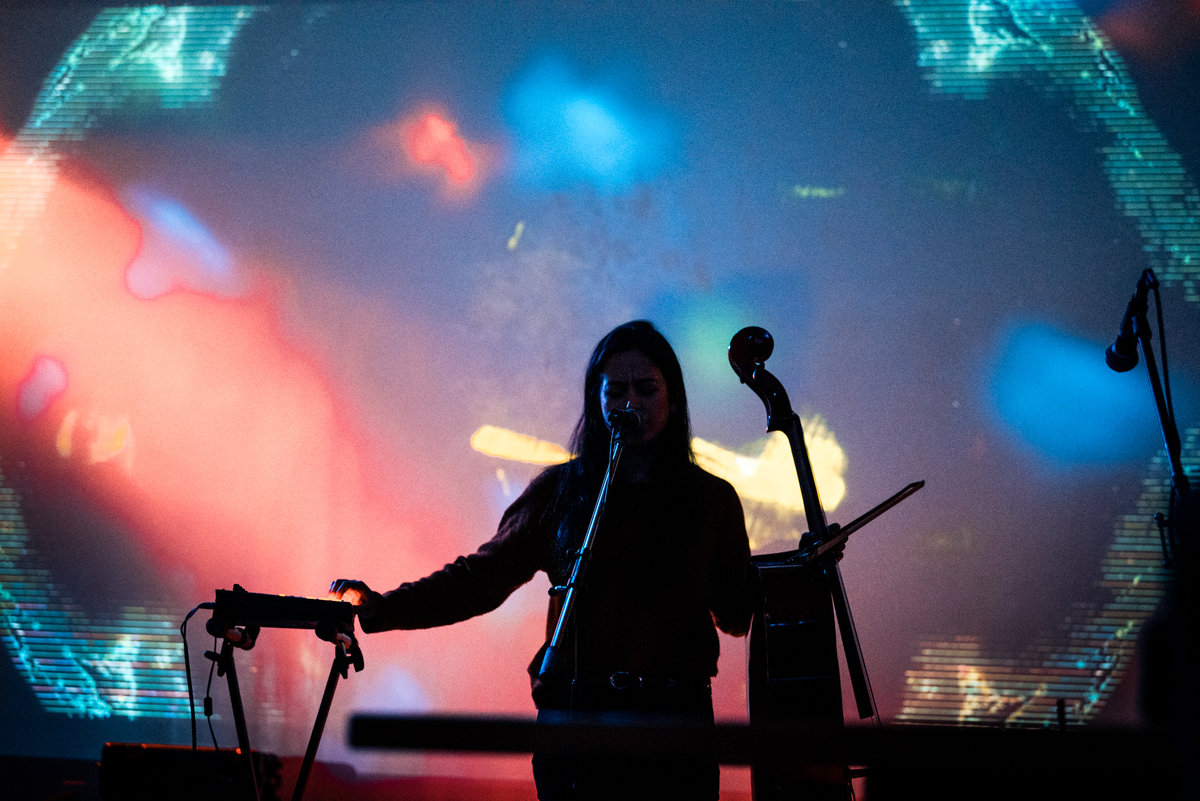
By Contributor – Rebecca Coyne
“Particulates…The National Anthem….COWS!!” Them Airs‘ vocalist Cade Williams’ voice distorts into unintelligible fuzz as he screams over splashing cymbals and disjointed, heavily-processed bass riffs on “Arther,” one of the more experimental interlude-type tracks on the band’s first album of 2020, Union Suit XL.
Based in New Haven, Connecticut, Them Airs is an active member of Connecticut’s distinctive musical subculture. Though some aesthetic and musical through lines are identifiable, DIY in Connecticut is generally defined by self-production in recording and performance methods rather than by common stylistic traits. Adam Cohen, Them Airs bassist, adds that in the New Haven area, DIY music is mainly comprised of “adjacent genres” such as “post-punk, math rock, and noise rock,” which he describes as distinct but in the same general “phylum” of music.
Cohen further observes that suburbia is an important source for fomenting DIY ideologies, laughing, “Suburbs produce a lot of disaffected college-age youth from which the DIY population springs, especially if they have a lot of issues with ‘society.’” Williams and Evan Nork, Them Airs drummer, confirm that, though there is some racial and gender diversity in the scene, the average DIY musician (and audience member) is white, college-age, and male.
Cohen says, “DIY is very low-brow, like ethically and explicitly it’s not high-brow—it’s something that’s supposed to be accessible to everybody.” However, Them Airs expressed some appreciation as well as scorn for institutions like Yale; for instance, Williams muses about the “artsy pretentiousness” that Yale adds to the New Haven area, saying, “Yale is weird, because New Haven wouldn’t be nearly as nice without Yale as it is, however also New Haven wouldn’t be as quote unquote ‘nice’ without Yale.” Regardless, CT DIY operates in a cultural and demographic space that is very much separate from elite institutions of Connecticut such as Yale and Wesleyan.
All three members of Them Airs described DIY live performance as a matchless, exhilarating, and quasi-spiritual experience, marked by an intense spirit of collective revery. These elements are of course shaped by the volatile, extreme nature of the music, but they are also heavily influenced by the architecture of DIY performance spaces themselves.
Williams explains that, while wide-open spaces allow a performer to distinguish the instruments from each other and to hear the particular sounds of their instrument as distinct from all the rest, “when you’re in like a 10 by 10 underground room with unfinished walls, everything blends together into this incredible sonic mass that just destroys your ears.” “It’s so good,” he adds. “When you’re on the floor with everybody, it feels very communal.”
Them Airs drummer Evan Nork argues that a healthy level of sonic chaos helps him feel more relaxed in live, communal settings: “It’s easier to get lost in it and be less self-conscious…That’s the difference [between] being part of that big sweaty mass as opposed to like recording vocals isolated and having to have everybody leave the room because they’re going to be judging every syllable.” The obscuring and muddying effects of this sonic landscape helps to eliminate individual anxieties about specific parts of the music “sounding good” or being absolutely precise, because a clean, defined sound would be impossible to achieve regardless.
The band’s first album of 2020, Union Suit XL, was released in January 2020. On their website, Nork describes the album as “the first to be recorded in a proper studio environment rather than assorted attics, basements, and college dorm laundry rooms, leading to such benefits as audible kick drum and a piano which has been tuned in less than 15 years”.
As mentioned, the studio provides greater artistic control, allowing separate musical elements to be isolated and manipulated, but its use also begs the question: at some point do increased levels of musical production distance the recorded product from “authentic” DIY? Williams conveys indignation about anyone’s ability to police the boundaries of “authenticity” or to determine what is or is not DIY: “Authenticity is just a fucking meme from generation X back when Nirvana was a thing. Authenticity is just an aesthetic, in the same way that, like, blue is an aesthetic. Like, fuck, who’s to say that Nickelback isn’t more authentic than Them Airs?”
Accordingly, Williams and Nork didn’t see their usage of the studio as any sort of departure from DIY; nevertheless, they were eager to point out the fact that they didn’t have to pay for the space. Nork also defends the continued prominence of their personal roles in the recording process, explaining, “A lot of it is also about marketing and releasing music and we’re still sort of mixing everything ourselves.”
Them Airs’ processes for composition itself, plus the eclectic combinations of musical objects they use, are reflective of an experimental quirkiness found elsewhere in the DIY scene. Them Airs often display an interestingly self-deprecating rhetoric about their music, constantly referring to it as “dumb,” or “inept,” or “dicking around” even as they pour time and energy into its creation and care deeply about its artistic value.
A focus on silliness that leads Them Airs’ websites and social media pages to describe the music they supposedly promote as, for instance, “clump-like” or “having been known to kill small dogs” preserves room for the forces of playfulness and absurdity and signals that the band does not take itself too seriously. These playful, impulsive dynamics also saturate the composition process. Williams says, “we spontaneously write riffs, and then we string them together haphazardly in the weirdest ways possible” and Nork adds that even when a band member presents a “fully-formed” idea, “it just becomes like distorted and recycled and digested through our ineptitude.”
Them Airs also includes found sounds, less common instruments, and any other objects that they think sound interesting on their records. For instance, on their Bandcamp page, Cohen’s roles for Union Suit XL are listed as: “bass, toys, croc, accordion, small vocals, modulation nipple on rollin’ bord, vibraslap, sturdy chips, bag fries”. Whereas Nork’s attitude toward musical objects is very nostalgic, Williams’ is more transitory (Cohen attests that “Cade acquires and jettisons gear at insane rates”). He explains that cycling through different types of guitars and other instruments “keeps me on my toes,” inspiring him to write in new ways. Indeed, when asked to pinpoint one instrument he was excited to use, Williams mentions a ring modulator pedal, enthusiastically “It’s the shit, I love it, I’m gonna sell it in six months, but I love it.” In contrast, Nork points to a synthesizer that he inherited when he was seven and only recently wrangled into working condition.
Them Airs draw inspiration from the built environment of New Haven, particularly its brutalist architecture, in their aesthetic as well as musical representations. The cover art for their 2018 album “Tiger Blood” displays a photograph of the George W. Crawford manor, and Cohen noted that other iconic buildings such as the Beinecke Library also influenced the geometric patterns in the cover art for 2019’s “Echo Park Bomb City”. He further expounds that the “stark lines” of brutalism “looks like some of the stuff that we make sounds—like angular and harsh.” In this way, brutalism as a visual style has influenced the mathematic rhythms as well as pointed tambours of the band’s sound.
On some level, these influences tie Connecticut DIY identity to local landscapes, despite Nork’s description of the scene as occupying an awkwardly “liminal space” between the more established and concentrated musical cultures of Boston and New York. Williams also points out that a feature that differentiates DIY in Connecticut from DIY in other states is the distance travelled and effort taken to participate in live shows, where “you’ll see people from literally an hour away in each direction.”
However, in the DIY scene, this unfocused, decentralized structure has necessitated a greater degree of effort on the part of both performers and audience members to cultivate and maintain their community, resulting in an even closer-knit network. Cohen even postulates that, in contrast to Connecticut, the New York scene lacks the space for “homegrown” music to grow and develop on its own artistic terms: bands only move there once they’ve already “gotten big” elsewhere. Ultimately, Cohen positions the uniqueness and camaraderie of DIY culture in direct opposition to this cultural criticism of Connecticut, arguing, “People rag on it, you know, but at the end of the day most people deep down have some level of pride—[the CT DIY scene] is something that people have a personal stake in, and put work into, and appreciate.”
Listen to Them Airs’ New Album “Doped Runner Verse” on Bandcamp and Spotify below:

